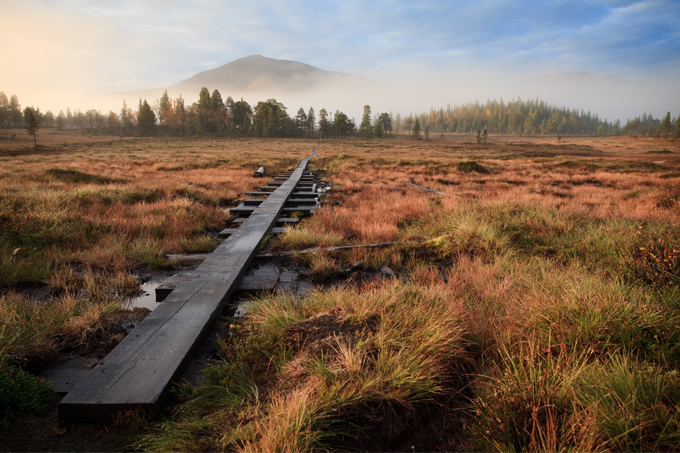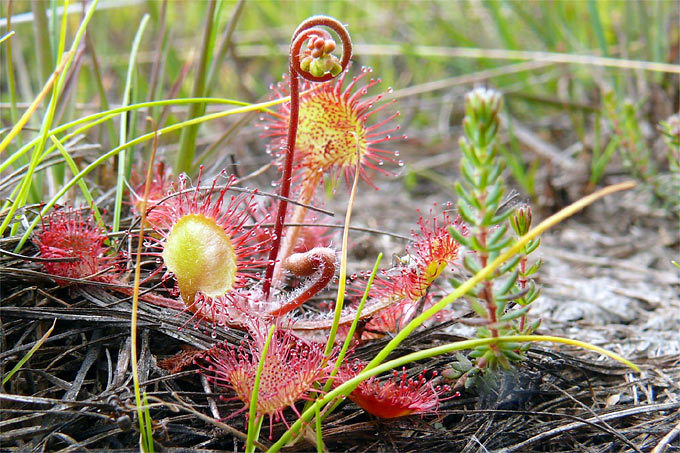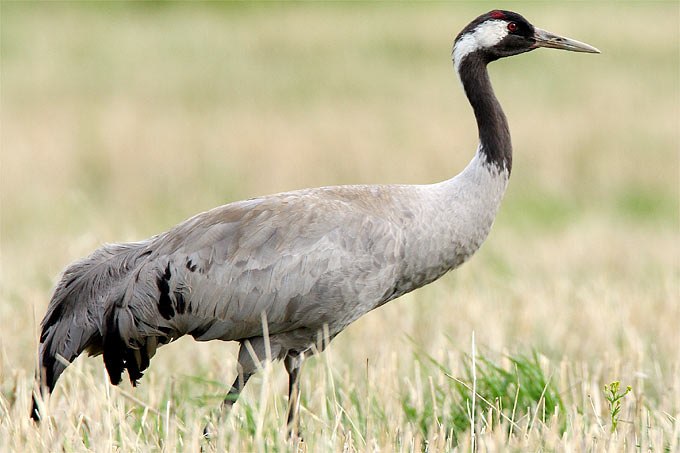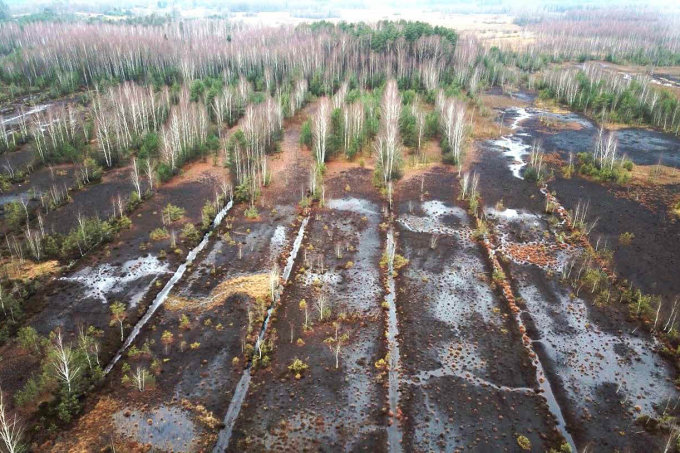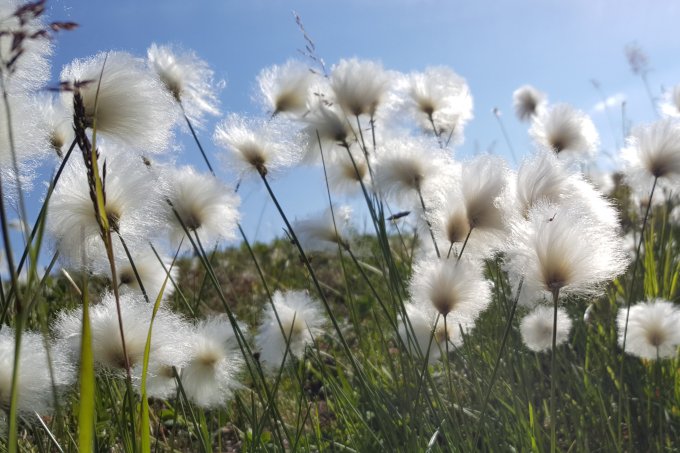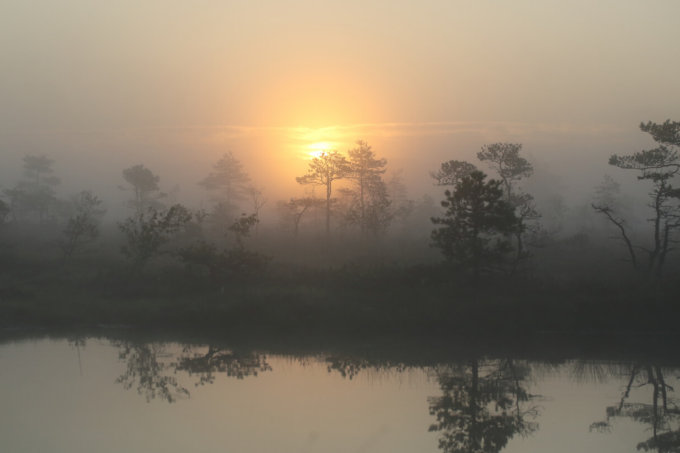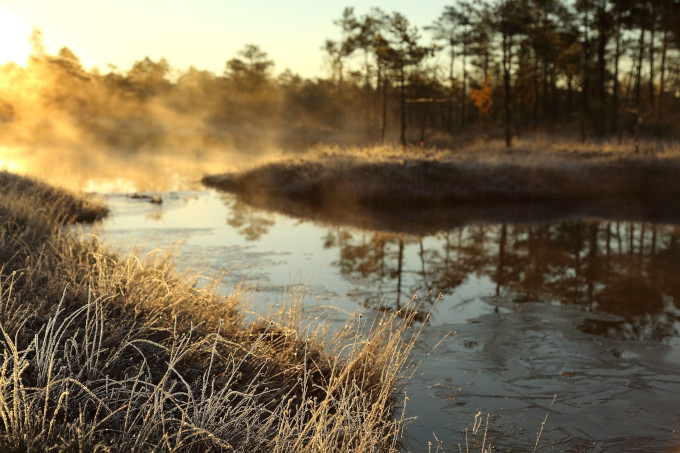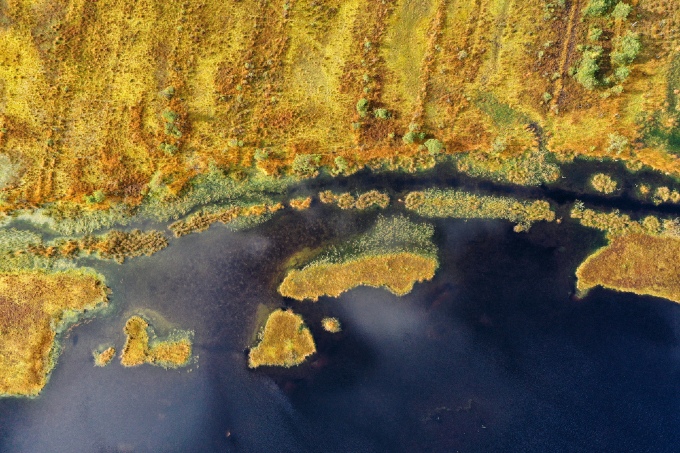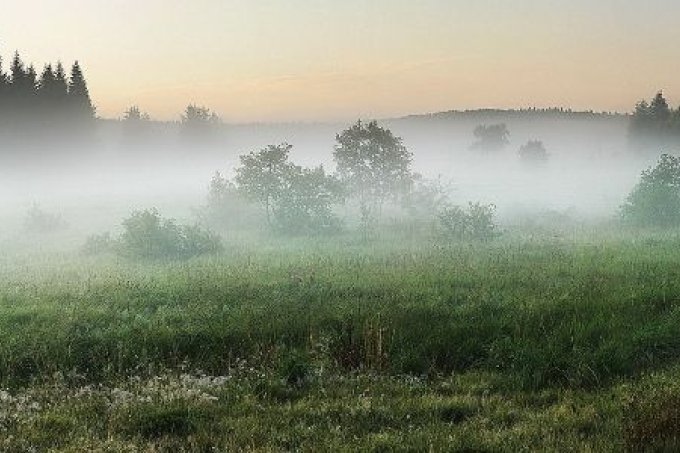Moor frog - photo: Susanne Großnick / NABU-naturgucker.de
Protect wetlands in Europe
Peatland conservation and restoration also protects species and climate
Wetlands are exciting ecosystems! They provide a wide array of benefits to both nature and humans: They offer habitat for rare wildlife, filter and store water, regulate local temperatures, and support agriculture, fisheries, and recreation. Last but not least, many types of wetland store vast amounts of carbon – and none do this better than peatlands. They are a specific type of wetland in which the soil is made up of partially decayed plant material – peat.
Peatlands are the world's most important terrestrial carbon sinks. Although they only cover three percent of all land area, they contain 30 percent of total terrestrial carbon: twice as much as all the world's forests. But for centuries, peatlands have been drained for agriculture and forestry, and their peat has been mined as fuel or as potting soil. This has led to a dramatic degradation of peatlands since the second half of the 20th century, especially in the industrial nations of the global north. Many peatlands have turned from climate heroes into climate villains, as drained peat decays rapidly, emitting enormous amounts of CO₂.
This makes peatland protection and restoration the most effective natural climate solution! That is why we focus our wetland protection efforts on peatlands. And furthermore: Peatlands serve as home to a unique world of flora and fauna. Countless species are adapted to the specialised conditions of peatlands. These include the crane, the white-faced darter and the sundew.
Europe’s peatlands in the spotlight
In Europe, drained peatlands are among the biggest emitters of greenhouse gases. Seven percent of total EU greenhouse gas emissions come from peatlands that have been drained for agriculture or forestry. And over 80 percent of global peat extraction takes place in Europe.
We need a peatland revolution! If we don’t take swift action to rewet virtually all of Europe’s drained peatlands, the EU will not be able to meet its goal of becoming carbon-neutral by 2050. NABU therefore works hard to restore these special wetland ecosystems across Europe. With our partners, we have rewetted formerly drained peatlands in Estonia, Latvia, Belgium, the Netherlands, England, and Ireland, to regain their function as carbon sinks and to restore them as habitats for rare species.
In our EU-funded project LIFE Peat Restore, we have successfully restored thousands of hectares of peatlands. But our job isn't done. In ongoing projects like LIFE Multi Peat und LIFE Peat Carbon, we continue to advance the rewetting of peatlands across Europe, and we are constantly developing new projects on a yet larger scale. The NABU Climate Fund supports the restoration of peatlands with sites in Germany, Belgium, England, Latvia and Finland.
Peatland policy – time to act!
Practical experience from our peatland projects informs our peatland policy positions. We know what impedes and what favours large-scale peatland restoration. From these insights, we draw our calls to action for the political arena.
Large-scale peatland rewetting can only succeed with the right policy framework on the European and national level.
- First of all, landowners and land users are our indispensable partners, because most of Europe’s peatlands are used for agriculture or forests.
- To initiate a European peatland revolution, we need clearly defined, time-bound targets for ending peatland drainage.
- At the same time, regional peatland economies must receive public support for shifting to wet land uses.
- To facilitate peatland restoration, legal and administrative hurdles to rewetting must be removed.
Only in this way will we succeed in restoring Europe’s peatlands fast enough to meet our biodiversity and climate goals.
Peatland Position
NABU has summarised its policy demands for the federal and state level, underpinned with extensive arguments and evidence, in its Peatlands Position.
click here for the position (in German)peatland projects in EUROPE
NABU is part of the LIFE Peat Restore project that aims to rewet degraded peatlands covering an area of 5,300 hectares in Germany, Poland, Latvia, Lithuania, and Estonia to restore their function as carbon sinks. more →
This project, which is running until 2027, aims to reduce CO₂ emissions in project sites by the equivalent of 37.117 tons of CO₂ per year in Latvia and 3.500 tons of CO₂ equivalent per year in Finland. NABU is supporting the project with its expertise in peatland restoration and communications. more →
What Europe needs? Wet peatlands! NABU is part of the international project LIFE Multi Peat that aims to rewet and manage degraded peatlands covering an area of 689 hectare. The project is being implemented in Poland, Belgium, the Netherlands, Ireland and Germany. more →
In the Ukraine, NABU can rely on active animal support to protect important peatlands – in the 'Enchanted Land' National Park, beavers and their dams assist with the rewetting of precious peatlands, thereby fostering climate and species protection. more →

